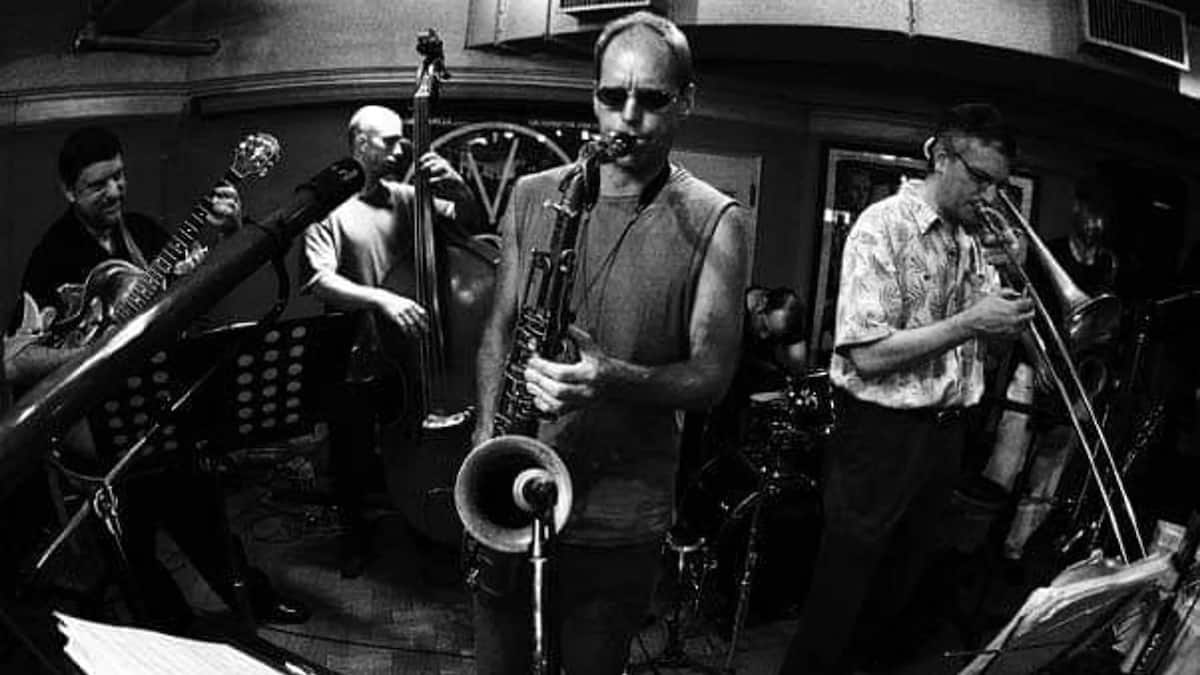Features
Why Do We Do It?

Guitarist Greg Chako explains why musicians are drawn to practice, play, and perform music.
I believe that each of us have a strong desire within us to know and express ourselves. I suspect it is that desire which is at the very root of why many of us to choose to play music.
We strive with practice and playing to create our ‘perfect’ musical statement. This is especially the case when we are working on improvisation, arranging, and composition skills because those are the aspects of music which tend to highlight our most individualized musical approach. I see that process of musical searching as something that is akin to psychologically seeking perfection within us; a search for that best expression of who we are, or our ‘Inner Self.’
Hazrat Inayat Khan, the renowned Indian professor, musician, poet, and philosopher, called music “the language of the soul.” In his book, The Mysticism of Music, Sound, and Word, The Sufi Message Volume II, he says this:
“What art cannot express, poetry explains; what poetry cannot express, is expressed by music. Therefore to a thinker music in all ages will stand supreme as the highest expression of what is deepest in oneself”
When Khan spoke of music he often did so in religious terms. The connection between religion and music is obvious and well-documented. Personally, I make a distinction between religion and spirituality. To me, religion can be defined by dogma, whereas spirituality is an individual search for the ultimate purpose in our lives, that may or may not concern religion.
Many jazz greats have discussed their music in terms of religion or spirituality. Some have even ascribed to spirituality or religion the very goal or purpose of their lifelong commitment to music. Coltrane certainly comes to mind in this respect, but he is merely one of many renowned artists who have spoken publicly about the close connection between music and some form of spiritual fulfillment.
Whether or not we choose to explore that specific connection, it’s clear to me that music helps us get to know and express ourselves, and for whatever reason – it makes us feel good!
In particular, performing music in public with other players is a highly cathartic experience. Having the professional experience of playing nightly for years, I know that despite any depression or lethargy I might have felt before a show, I always felt better afterwards. Music has the uncanny potential to really inspirit and uplift us, listener and player alike!
I sometimes joke with people that instead of my having to pay for a therapist, I’m getting paid for therapy! Because to a greater or lesser extent, depending on how good I feel about the person(s) I’m playing with and of the audience present, I will surely have received some emotional healing (therapy) from one of my performances. Indeed, it is the power of this ‘healing’ feeling, and not merely the amount of money received, that prompts us to accept and enjoy certain gigs more than others.
National Endowment for the Arts JazzMaster and vibist, Bobby Hutcherson is quoted as saying:
“The whole thing of being in music is not to control it but to be swept away by it. If you’re swept away by it you can’t wait to do it again, and the same magical moments always come.”
I can certainly relate to what Bobby is talking about. When there is a ‘perfect storm’ of circumstances on a given night, that one night’s experience is potentially enough to (emotionally) sustain musicians like me for weeks! So what are those perfect circumstances? These:
- Having the right musical partners
- Having a receptive audience
- Being ‘in the present moment’ (highly focused)
- Getting paid
By far, the most difficult of those 4 criteria for us to achieve is to be highly focused in the present moment. The last in importance is the pay. All four of them are complex, important topics. But for the purpose of this article, I wish to highlight the fact that we musicians and performers get something from music and a performance that motivates us to continue to do what we do. That ‘something’ is extremely personal and emotional in nature.
Dr. Georgi Lozanov, a world-renowned psychiatrist and educator who many consider the originator of ‘Accelerated Learning’, believed the key to effective teaching was not necessarily related to I.Q. or intelligence. So, he inserted music directly into curriculum to simultaneously activate both right and left sides of the brain, thereby engaging the emotions and merging conscious and unconscious stimuli. As he put it, “. . . the arts are the greatest form of suggestion in existence . . .”.
The New York Times best-seller book, Super Learning 2000, by Sheila Ostrander and Lynn Schroeder, describes in detail how music is used successfully in connection with imagery, cognitive science, and various forms of training and education, to synchronize one’s brain and body, “ . . . inducing a powerful form of alert relaxation – an ideal state for optimal accomplishment . . .”.
These last two quotes lay some basis for the ever-growing, popular field of Music Therapy. We are a musical species – our ancestors have been healing with sound for millennia – and today many of us play music to alter our moods. It is natural to ascertain that we play and practice music because of this reason.
Music feels good, and we are each on a quest for inner peace, knowledge, self-awareness, and fulfillment. Music helps us achieve a ‘means to an end’.
Subscribe to Jazz Guitar Today – it’s FREE!
-
Jazz Guitar Lessons2 weeks ago
New JGT Guitar Lesson: Analyzing “Without A Song”
-
Jazz Guitar Lessons4 weeks ago
New JGT Guitar Lesson: Considering “Falling Grace”
-
Artist Features1 week ago
New Kurt Rosenwinkel JGT Video Podcast – July 2024
-
Artist Features3 weeks ago
JGT Talks To Seattle’s Michael Eskenazi



















